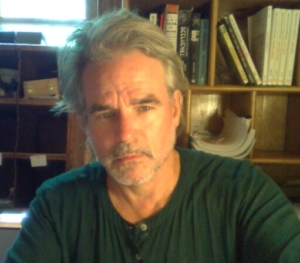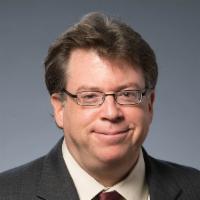

Using the Image and Meaning of the Bodhisattva in Clinical Work
February 25, 2022 @ 4:00 am - 6:00 am
Using the Image and Meaning of the Bodhisattva in Clinical Work
Friday, February 25, 2022
Registration 8:30am Program 9am to 11am
Presented By: Peter Ryan, Sabom Nim, M.Sc., F.O.T and Jeffrey Wexler, Psy.D., JD
Location: Online Workshop
2 CE Credits
A Bodhisattva is the symbolization of a being who made an epic, life-long effort to eradicate the source of suffering (that is, the preoccupation with the self) but who, instead of enjoying the fruits of that effort, returns to the everyday world to help all beings do this for themselves. As it is assumed that all beings are utterly interrelated, it is only logical that no being is “saved” until all are. This is the ethical foundation and imperative of the branch of Buddhism called Mahayana.
Beginning with a brief but interesting take on the cultural competence issues rarely discussed when mindfulness is stripped of its cultural context, we will explore “Buddhist Psychology” along several lines: the diagnostic and salvational schematic developed by the 10th century scholar and teacher Zhongmi; the practice of “doubting meditation” or hwadu; the guiding power of the well-known Ox Herding Pictures; and finally the action of “returning to suffering” that is the nature of the Bodhisattva. Along the way, the self-care, cultural, ethical, and clinical implications will be discussed.
Objectives:
- Identify mindfulness skills that help develop compassion and concentration.
- Describe an application of the Buddhist concepts of attachment and self to a clinical situation.
- Explain the use of ritual and symbol in Buddhist psychology to enhance personal growth
 Peter J. Ryan is a therapist and teacher. He earned a Masters degree in Clinical Psychology from Chestnut Hill College in 2012, with a specialization in trauma. Peter teaches the psychological, humanistic, and phenomenological techniques and theories of Eugene Gendlin through the International Focusing Institute and is a certified lay teacher of Zen Buddhism in the Shim Gum Do Order. In 1997, upon return from China, he founded one of the first Zen Buddhist high school in North America, where he served as principal, primary instructor in Buddhist meditation and martial arts, and taught classical literature and American history. Peter is currently teaching and training clinicians at the Focusing Institute, teaching Zen martial arts and meditation, and working in private practice at Lovrinic Psychological Services where he works with families and children, as well as adults struggling with symptoms associated with trauma. He has two adult children, a young teenage stepson, and lives in Doylestown with his partner, Kelly Reed, a therapist and Ayuvedic practitioner and teacher.
Peter J. Ryan is a therapist and teacher. He earned a Masters degree in Clinical Psychology from Chestnut Hill College in 2012, with a specialization in trauma. Peter teaches the psychological, humanistic, and phenomenological techniques and theories of Eugene Gendlin through the International Focusing Institute and is a certified lay teacher of Zen Buddhism in the Shim Gum Do Order. In 1997, upon return from China, he founded one of the first Zen Buddhist high school in North America, where he served as principal, primary instructor in Buddhist meditation and martial arts, and taught classical literature and American history. Peter is currently teaching and training clinicians at the Focusing Institute, teaching Zen martial arts and meditation, and working in private practice at Lovrinic Psychological Services where he works with families and children, as well as adults struggling with symptoms associated with trauma. He has two adult children, a young teenage stepson, and lives in Doylestown with his partner, Kelly Reed, a therapist and Ayuvedic practitioner and teacher.
 Jeffrey Wexler, J.D., Psy.D., is a practicing psychologist and attorney. He received his B.A. from the University of Pennsylvania in 1984, J.D. from the Georgetown University Law Center in 1987, and Psy.D. from Immaculata University in 2009. His training included extensive experience as an individual and group therapist in community mental health settings and psychological testing in the context of child custody litigation. In his psychology practice, he provides psychotherapy to adolescents, adults, and couples and performs forensic psychological evaluations, usually involving issues of capacity arising in the context of civil litigation. He currently resides in Huntingdon Valley, Pennsylvania, with his wife and daughter.
Jeffrey Wexler, J.D., Psy.D., is a practicing psychologist and attorney. He received his B.A. from the University of Pennsylvania in 1984, J.D. from the Georgetown University Law Center in 1987, and Psy.D. from Immaculata University in 2009. His training included extensive experience as an individual and group therapist in community mental health settings and psychological testing in the context of child custody litigation. In his psychology practice, he provides psychotherapy to adolescents, adults, and couples and performs forensic psychological evaluations, usually involving issues of capacity arising in the context of civil litigation. He currently resides in Huntingdon Valley, Pennsylvania, with his wife and daughter.
PSCP: The Psychology Network is approved by the American Psychological Association to sponsor continuing education for psychologists. PSCP: The Psychology Network maintains responsibility for this program and its content.
